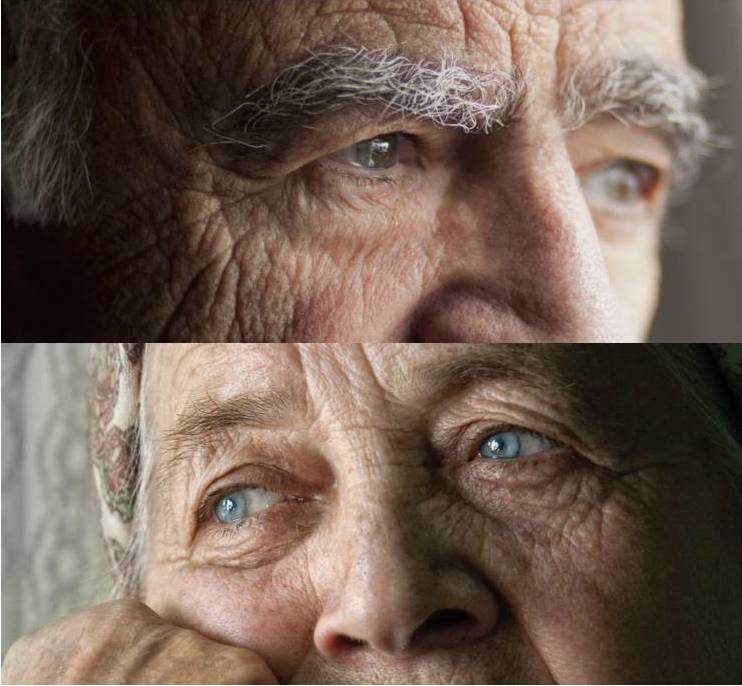Loneliness & Isolation

The eyes do speak
Feelings of loneliness & isolation can lead to serious consequences for senior health. Understanding the causes and risk factors for senior isolation can help us prevent it.
My 30+ years of Healthcare Administration experience, particularly the 26 years of Geriatric Care, has taught me much above caring for older adults. However, researching for this article made me realize that although I wanted to focus on how Loneliness & Isolation is pertinent to older adults… it is equally applicable to all age groups. For the sake of relevance and theme of Eldercare, this article reviews the context of loneliness and social isolation in later life is that of “successful aging” and “quality of life”. The term “quality of life” includes a broad range of areas of life.
There is little agreement about a single definition of the term. Models of quality of life range from identification of “life satisfaction” or “social wellbeing” to models based upon concepts of independence, control, social and cognitive competence. However, regardless of how the concept of quality of life is defined, research has consistently demonstrated the importance of social and family relationships towards the achievement of “successful aging” and “quality of life”.
No one relishes the prospect of aging without a spouse, family members at their side or without friends to help them laugh at the ridiculous parts & support them through difficult times. Yet, that is just what many North American seniors face. As the baby boomer generation crosses the over-65 threshold and the overall population of older adults skyrocket many of our aging loved ones are still feeling alone in the crowd.
While living alone does not inevitably lead to social isolation, it is certainly a predisposing factor. Yet another important consideration is how often seniors engage in social activities. Statistics Canada reports that 80% of Canadian Seniors participate in one or more social activities on a frequent basis (at least monthly) – but that leaves fully one-fifth of seniors not participating in weekly or even monthly activities. Social contacts tend to decrease as we age for a variety of reasons, including retirement, the death of friends & family or lack of mobility.
Regardless of the causes of senior isolation, the consequences can be alarming and even harmful. Even perceived social isolation – the feeling that you are lonely – is a struggle for many older people. Fortunately, the past couple of decades have seen increasing research into the risks, causes, and prevention of loneliness in seniors.
Below are the major documented facts about senior isolation to help you stay informed:
Senior isolation increases the risk of mortality
According to a 2012 study in the Proceedings of the National Academy of Sciences, both social isolation and loneliness are associated with a higher risk of mortality in adults aged 52 and older.
One possible explanation: “People who live alone or lack social contacts may be at increased risk of death if acute symptoms develop, because there is less of a network of confidantes to prompt medical attention.” Efforts to reduce isolation are the key to addressing the issue of mortality, said the study’s authors.
Feelings of loneliness can negatively affect both physical & mental health
Regardless of the facts of a person’s isolation, seniors who feel lonely and isolated are more likely to report also having poor physical and/or mental health, as reported in a study using data from the National Social Life, Health, and Aging Project. Connecting seniors with social resources, such as senior centers, home care agency and meal delivery programs, is one way to combat subjective feelings of isolation.
Perceived loneliness contributes to cognitive decline and risk of dementia
Dr. John Cacioppo, a neuroscientist and psychologist at the University of Chicago, has been studying social isolation for 30 years. One frightening finding is that feelings of loneliness are linked to poor cognitive performance and quicker cognitive decline. We evolved to be a social species, says Dr. Cacioppo – it’s hard-wired into our brains, and when we don’t meet that need, it can have physical and neurological effects.
Social isolation makes seniors more vulnerable to elder abuse
Many studies show a connection between social isolation and higher rates of elder abuse, reports the National Center on Elder Abuse. Whether this is because isolated adults are more likely to fall victim to abuse, or a result of abusers attempting to isolate the elders from others to minimize risk of discovery, researchers aren’t certain. A critical strategy for reducing elder abuse is speaking up: abuse, neglect and exploitation often go unreported. As for prevention, maintaining connections with senior loved ones helps us ensure their safety.
LGBT seniors are much more likely to be socially isolated
LGBT seniors are twice as likely to live alone, according to SAGE (Services & Advocacy for GLBT Elders); they are more likely to be single and they are less likely to have children – and they are more likely to be estranged from their biological families. Stigma and discrimination are major roadblocks to support for LGBT seniors, but there are more and more community groups and online resources devoted to helping these elders avoid isolation.
Social isolation in seniors is linked to long-term illness
In the Proceedings of the National Academy of Sciences study, illnesses and conditions such as chronic lung disease, arthritis, impaired mobility, and depression were associated with social isolation. Ensuring appropriate care for our loved ones’ illnesses can help prevent this isolation. For homebound seniors, phone calls and visits can be a critical part of connecting with loved ones. Others may find that moving to an assisted living community or obtaining home care arrangements mitigates both issues – the need for ongoing care, empathy and the desire for meaningful companionship.
Loneliness in seniors is a major risk factor for depression
Numerous studies over the past decade have shown that feeling loneliness is associated with more depressive symptoms in both middle-aged and older adults. One important first step is recognizing those feelings of loneliness, isolation and depression and seeking treatment – whether it’s on your own behalf or for the sake of a loved one.
Loneliness causes high blood pressure
A 2010 study in Psychology and Aging indicated a direct relationship between loneliness in older adults and increases in systolic blood pressure over a 4-year period. These increases were independent of race, ethnicity, gender, and other possible contributing factors. Early interventions for loneliness, say the study’s authors, may be key to preventing both the isolation and associated health risks.
Socially isolated seniors are more pessimistic about the future
According to the National Council on Aging, socially isolated seniors are more likely to predict their quality of life will get worse over the next 5-10 years, are more concerned about needing help from community programs as they get older, and are more likely to express concerns about aging in place.
The National Association of Area Agencies on Aging says community-based programs and services are critical in helping ward off potential problems and improving quality of life for older people.
Physical and geographic isolation often leads to social isolation
“One in six seniors living alone in the Canada & US faces physical, cultural, and/or geographical barriers that isolate them from their peers and communities,” reports the National Council on Aging. “This isolation can prevent them from receiving benefits and services that can improve their economic security and their ability to live healthy, independent lives.” Referring isolated older adults to senior centers, activity programs, and transportation services can go a long way toward creating valuable connections and reducing isolation.
Isolated seniors are more likely to need long-term care
Loneliness and social isolation are major predictors of seniors utilizing home care, as well as entering nursing homes, according to a 2004 report from the Children’s, Women’s and Seniors Health Branch, British Columbia Ministry of Health. The positive angle of these findings, says the report, is that using long-term health care services can in itself connect seniors with much-needed support. Particularly for seniors in rural areas where home care may not be viable, entering a care facility may provide companionship and social contact.
Loss of a spouse is a major risk factor for loneliness and isolation
Losing a spouse, an event which becomes more common as people enter older age, has been shown by numerous studies to increase seniors’ vulnerability to emotional and social isolation, says the same report from the British Columbia Ministry of Health. Besides the loneliness brought on by bereavement, the loss of a partner may also mean the loss of social interactions that were facilitated by being part of a couple. Ensuring seniors have access to family and friendship support can help alleviate this loneliness.
Transportation challenges can lead to social isolation
Life expectancy exceeds safe driving expectancy after age 70 by about six years for men and 10 years for women. Yet, 41% of seniors do not feel that the transportation support in their community is adequate.
Having access to adequate public transportation or other senior transportation services is key to seniors’ accessing programs and resources, as well as their feelings of connectedness and independence.
Family Caregivers of the elderly are also at risk for social isolation
Being a family caregiver is an enormous responsibility, whether you are caring for a parent, spouse, or other relative. When that person has Alzheimer’s disease, dementia, or a physical impairment, the caregiver may feel even less able to set aside his or her caregiving duties to attend to social relationships they previously enjoyed. This can trigger loneliness and depression. Seeking support, caring for yourself, and even looking for temporary respite care can help ward off caregiver loneliness and restore your sense of connection.
Loneliness can be contagious
Studies have found that loneliness has a tendency to spread from person to person, due to negative social interactions and other factors. In other words, when one person is lonely, that loneliness is more likely to spread to friends or contacts of the lonely individual. Making things even worse, people have a tendency to further isolate people who are lonely because we have evolved to avoid threats to our social cohesion. It’s a complicated situation, and simply telling seniors to engage in more social activities may not be enough. Considering our loved ones’ needs as individuals is a valuable first step to figuring out how to prevent or combat isolation.
Lonely people are more likely to engage in unhealthy behavior
A 2011 study using data from the English Longitudinal Study of Ageing (ELSA) found that people who are socially isolated or lonely are also more likely to report risky health behaviors such as poor diet, lack of physical activity, and smoking. Conversely, social support can help encourage seniors to eat well, exercise, and live healthy lifestyles. Living in a community situation can be an effective barrier to loneliness, and most senior communities specifically promote wellness through diet and exercise programs.
Volunteering can reduce social isolation and loneliness in seniors
We all know that volunteering is a rewarding activity, and seniors have a unique skill set and a richness of life experience to contribute to their communities. It can also boost longevity and contribute to overall mental health, wellbeing, and it ensures that seniors have a source of social connection. There are many opportunities tailor-made for seniors interested in volunteering
Feeling isolated? Take a class
A review of studies looking at various types of interventions on senior loneliness found that the most effective programs for combating isolation had an educational or training component: for instance, classes on health-related topics, computer training, or exercise classes.
Technology can help senior isolation – but not always
Even though modern technology provides us with more opportunities than ever for keeping in touch, sometimes the result is that we feel lonelier than ever. The key to finding technological interventions that really do help, says Health Quality Ontario, is matching those interventions to the specific needs of individual seniors. One simple strategy that does help: for seniors with hearing loss, simply providing a hearing aid can improve communication and reduce loneliness. Phone contact and Web-based support programs were less consistent in their effectiveness, but for some, they might provide a lifeline.
Physical activity reduces senior isolation
Group exercise programs, it turns out, are a wonderfully effective way to reduce isolation and loneliness in seniors – and of course they have the added benefit of being great for physical and mental health. In one study, discussed by Health Quality Ontario, seniors reported greater wellbeing regardless of whether the activity was aerobic or lower-impact, like stretching.
Loneliness & Isolation is neither inevitable nor irreversible. Getting the facts can help us better understand and prevent loneliness in the lives of our older loved ones, as they face the life changes of aging.
In reference to the beginning of the article, one can easily relate how this article is not to simply to understand, intervene and mitigate loneliness & isolation as it pertains to affecting the lives our older loved ones. Loneliness and isolation affects individuals in all age categories and the above points will go a long way in staving off those affects and achieving “successful aging” and “quality of life”.
In Our Care – Home Care Services, understand that care is not simply based on the physical support your older loved one may need… there are a broad spectrum built-in service components to achieve our overall goal… Enriching the lives of those we love and deliver care to.
Your loved one may not be direct family, but they’re part of the In Our Care family… therefore they are.

